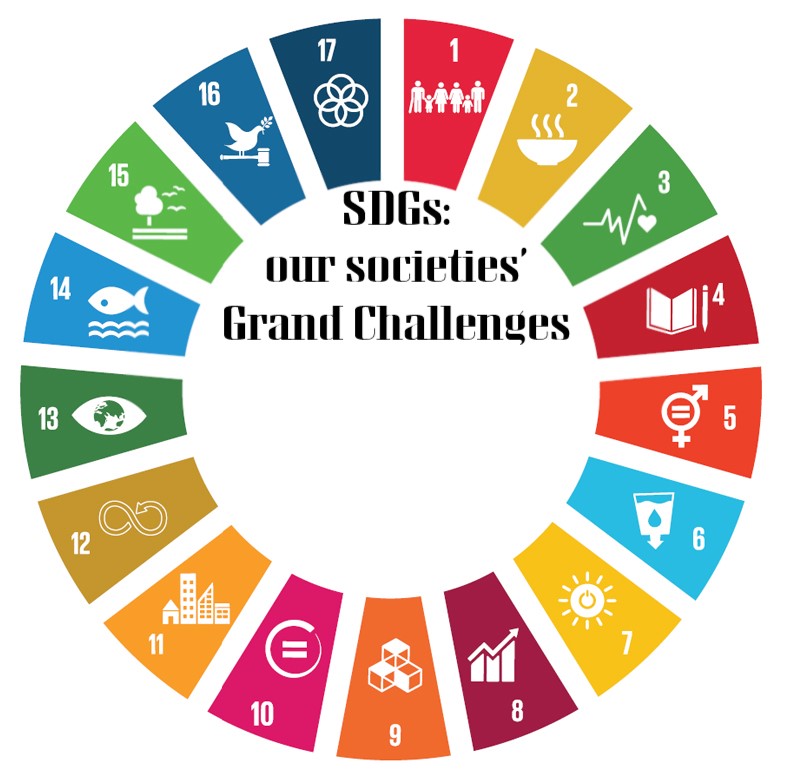By Ali Aslan Gümüsay.
Sharing is not always caring
In 2015, thousands of refugees arrived in Europe. A recent paper by Kornberger and colleagues (2017) zooms in on the “Train of Hope”, a civil society organization that organically gained exclusive operational command at Vienna’s main train station during this refugee crisis. The paper is a critical reflection on much of the current sharing economy ‘hype’. In contrast to cases of “collaborative consumption”[1], where platform companies such as AirBnB or Uber offer (share?) other people’s resources, this is an exemplary case of engagement and sharing without expectations for direct individual return: a sharing of a concern for social well-being.[2] Sharing then becomes caring.
Hybridity everywhere
What is Train of Hope? It is probably something of a platform and social movement blend that combines various skills like first aid, translation and accommodation services. It is a hybrid organization – and such hybrids seem to pop up everywhere lately. These novel forms of organizing combine different logics, orders of worth, value spheres, organizational forms and/or identities – struggling for a value(s) synthesis.[3] I see incubators, social ventures, ateliers, fab labs struggling to organize, represent and scale – and find their diverse pursuits fascinating, enriching and complementary. They do hybrid organizing in and for society and are frequently novel, digital, flexible, fluid, cross-boundary, multi-jurisdictional, and temporary forms.
Grand challenges & novel forms of organizing
Why now? A potential answer may lie in the types of challenges our societies face. Scholars from the field of management and organization studies speak of “grand challenges”[4] that are complex, uncertain, and multi-jurisdictional phenomena.[5] They represent fundamental, global societal concerns of ecological or social nature that require coordinated and collective efforts of multiple actors, including business firms, governments, civil society, and academia – as well as new forms of (hybrid) organizing.
Together with Emilio Marti (Erasmus University Rotterdam), Hannah Trittin (Leuphana University Lüneburg), and Christopher Wickert (VU University Amsterdam), I have initiated a scientific network that will be funded by the German National Science Foundation (DFG). The network will zoom in over the next three years on the interrelationship between grand challenges and new forms of organizing. Such organizations attempt to tackle the various sustainable development goals from climate change, decent work and sustainable growth, gender equality, populism and racism, societal cohesion, responsible consumption and production, to sustainable cities and communities.
A Janus face
The scientific network takes the vantage point in the assumption that such new forms of organizing often have a Janus face. They are both potential cause and solution for certain grand societal challenges. On the one hand, social entrepreneurial ventures[6], online communities such as Wikipedia and Linux[7], crowd science projects like Foldit, Galaxy Zoo and Polymath[8], and social initiatives like “Train of Hope” promise novel means to tackle these challenges. On the other hand, they also create new ones. For example, crowdsourcing and other new forms of platform-organized work crafted along the surge of the digital economy[9] often fuel the proliferation of precarious, self-employed and low-paid work that undermines social welfare systems and thus endanger modern democracies.[10] Likewise, in her recent book “Weapons of Math Destruction”, O’Neil (2016) describes how the (ab)use of new, seemingly efficient big data management techniques can promote, rather than reduce, racism, inequality and discrimination. Clearly then, novel hybrid forms of organizing promise many opportunities to tackle grand challenges – yet also create new (grand) challenges for society.
Ali Aslan Gümüsay is a Postdoctoral Researcher at the University of Hamburg and Research Fellow at Vienna University of Economics & Business. Twitter: @guemuesay
[1] Botsman & Rogers, 2010.
[2] Gümüsay, 2018.
[3] Gümüsay, 2017.
[4] George, Howard-Grenville, Joshi, & Tihanyi, 2016.
[5] Ferraro, Etzion, & Gehman, 2015.
[6] Mair & Martí, 2006.
[7] Garud, Jain, & Tuertscher, 2008.
[8] Franzoni & Sauermann, 2014.
[9] Bauer & Gegenhuber, 2015; Boes, Kämpf, Langes, & Lühr, 2016.
[10] Morozov, 2015.
References
Bauer, R. M., & Gegenhuber, T. 2015. Crowdsourcing: Global search and the twisted roles of consumers and producers. Organization, 22(5): 661–681.
Boes, A., Kämpf, T., Langes, B., & Lühr, T. 2016. “Lean” und “agil” im Büro: Neue Formen der Organisation von Kopfarbeit in der digitalen Transformation, Working Paper Forschungsförderung. Düsseldorf: Hans-Böckler-Stiftung.
Botsman, R., & Rogers, R. 2010. Beyond zipcar: Collaborative consumption. Harvard Business Review, 88(10): 30.
Ferraro, F., Etzion, D., & Gehman, J. 2015. Tackling Grand Challenges Pragmatically: Robust Action Revisited. Organization Studies, 36(3): 363–390.
Franzoni, C., & Sauermann, H. 2014. Crowd science: The organization of scientific research in open collaborative projects. Research Policy, 43(1): 1–20.
Garud, R., Jain, S., & Tuertscher, P. 2008. Incomplete by Design and Designing for Incompleteness. Organization Studies, 29(3): 351–371.
George, G., Howard-Grenville, J., Joshi, A., & Tihanyi, L. 2016. Understanding and Tackling Societal Grand Challenges through Management Research. Academy of Management Journal, 59(6): 1880–1895.
Gümüsay, A. A. 2017. Unpacking entrepreneurial opportunities: an institutional logics perspective. Innovation: Organization & Management, 1–14.
Gümüsay, A. A. 2018. COMMENTARY: Sharing is caring: From material to socio-material sharing. Academy of Management Discoveries. [Forthcoming]
Kornberger, M., Leixnering, S., Meyer, R., & Hoellerer, M. 2017. Rethinking the Sharing Economy: The Nature and Organization of Sharing in the 2015 Refugee Crisis. Academy of Management Discoveries. https://doi.org/10.5465/amd.2016.0138.
Mair, J., & Martí, I. 2006. Social entrepreneurship research: A source of explanation, prediction, and delight. Journal of World Business, 41(1): 36–44.
O’Neil, C. 2016. Weapons of math destruction: how big data increases inequality and threatens democracy. London: Allen Lane.
Pic: SDGs, circle, by UN WMO; edited.
